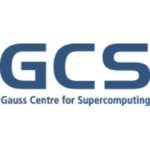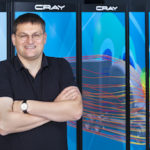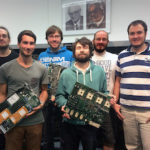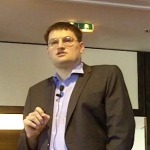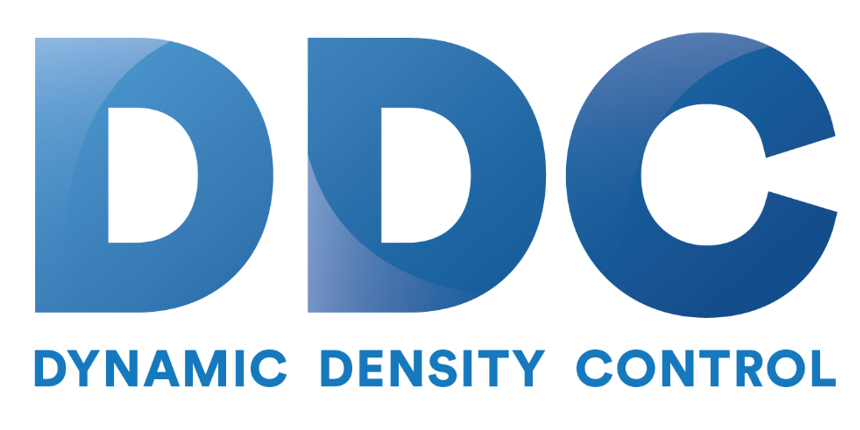Berlin – The Gauss Centre for Supercomputing (GCS) Scientific Steering Committee just approved 16 new scientifically demanding simulation projects during its 24th call for large-scale projects. Representing scientific disciplines ranging from fluid mechanics to elementary particle physics, the projects all leverage Germany’s leading highperformance computing (HPC) resources to help solve some of humanity’s most challenging […]
Projects Picked for Gauss Centre’s Hawk and JUWELS HPC Systems in the 24th Large-Scale Call
European HPC ecosystem supports the fight against COVID-19
The European PRACE initiative has released a list of partner activities and initiatives to help combat COVID-19. While medical professionals are working around the clock to help those affected, PRACE partners, HPC centres, and research infrastructures are doing their bit by opening up their facilities for urgent/priority access to the HPC systems and other resources to support the research to combat the coronavirus.
300K-Core SuperMUC-NG System Launches at LRZ in Germany
LRZ in Germany dedicated their new SuperMUC-NG (“next generation”) supercomputer last week in Munich. Built by Lenovo, the massive system uses innovative hot-water cooling to achieve unprecedented computational power for large-scale scientific and engineering simulations.
Gauss Centre in Germany Awards 2.1 Billion Core Hours for Science
Today the Gauss Centre for Supercomputing (GCS) in Germany approved 30 large-scale projects as part of their 17th call for large-scale proposals. Combined, these projects received 2.1 billion core hours, marking the highest total ever delivered by the three GCS centres. “GCS awards large-scale allocations to researchers studying earth and climate sciences, chemistry, particle physics, materials science, astrophysics, and scientific engineering, among other research areas of great importance to society.”
Michael Resch Named Chairman of GCS in Germany
Today the Gauss Centre for Supercomputing in Germany announced that Prof. Dr. Michael M. Resch is the new chairman of the GCS Board of Directors. “Over the coming years, GCS is devoted to keeping its leading European position in HPC,” Resch said. “With all the challenges of architectural diversity and varying user requirements, we strongly believe that GCS will face the challenge and deliver performance not just in terms of flops, but more importantly in terms of best solutions and practices for our scientific and industrial users.”
Prof. Dieter Kranzlmüller Named Chairman of the Board at LRZ in Germany
Today the Gauss Centre for Supercomputing (GCS) announced that Prof. Dr. Dieter Kranzlmüller is the new Chairman of the Board of Directors at GCS member Leibniz Supercomputing Centre (LRZ).
Scaling HPC at the Jülich Supercomputing Centre
In this special guest feature, Tim Gillett from Scientific Computing World interviews Norbert Attig and Thomas Eickermann from the Jülich Supercomputing Centre about how JSC is tackling high performance computing challenges.
GCS Supports Two German Teams for the SC16 Student Cluster Competition
Today the Gauss Centre for Supercomputing (GCS) in Germany announced it is co-sponsoring undergraduate students participating in the SC16 Student Cluster Competition (SCC). This year, GCS provides financial support for two German teams which were accepted for the multi-disciplinary HPC challenge integrated within the Supercomputing Conference 2016 (SC16) in Salt Lake City (Utah, USA): team […]
GCS in Germany Allocates Record Number of Core Hours for Research
The Gauss Centre for Supercomputing (GCS) in Germany has allocated a record 1,648 million core hours of computing time to 21 scientifically outstanding national research projects as part of its Call for Large-Scale Projects. “GCS is excited to support simulation projects of these excelling scopes as they clearly underline our claim of Germany being a world leader in High Performance Computing. Beyond dispute, they produce proof of us being at eye level with the largest international research projects such as the INCITE Program supported by the Office of Science of the U.S. Department of Energy,” states Prof. Thomas Lippert of JSC, GCS Chairman of the Board.”
Video: Europe’s Fastest Supercomputer and the World Around It
Michael Resch from HLRS gave this rousing talk at the HPC User Forum. “HLRS supports national and European researchers from science and industry by providing high-performance computing platforms and technologies, services and support. Supercomputer Hazel Hen, a Cray XC40-system, is at the heart of the HPC system infrastructure of the HLRS. With a peak performance of 7.42 Petaflops (quadrillion floating point operations per second), Hazel Hen is one of the most powerful HPC systems in the world (position 8 of TOP500, 11/2015) and is the fastest supercomputer in the European Union. The HLRS supercomputer, which was taken into operation in October 2015, is based on the Intel Haswell Processor and the Cray Aries network and is designed for sustained application performance and high scalability.”



